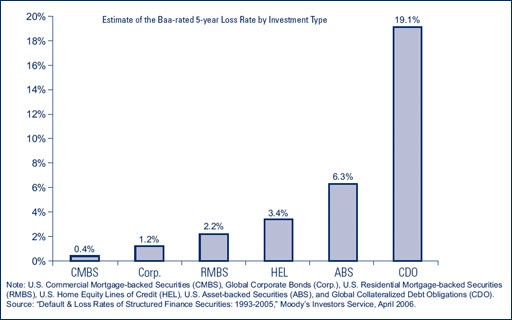Which agencies protect investors
Post on: 15 Май, 2015 No Comment

While you can’t completely protect your investments. there are some measures you should know about.
The Federal Deposit Insurance Corp. or FDIC, is an independent agency of the federal government. It protects consumers and businesses against the loss of insured deposits if an FDIC-insured institution fails.
Unlimited coverage — only at participating FDIC-insured banks and savings associations***
*On Jan.1, 2013, the standard coverage limit will return to $100,000 for all deposit categories except IRAs and Certain Retirement Accounts, which will continue to be insured up to $250,000 per owner.
**Certain Retirement Accounts are deposits owned by one person and titled in the name of that person’s retirement account. Accounts that qualify are traditional IRAs; Roth IRAs; Simplified Employee Pension, or SEP, IRAs; Savings Incentive Match Plan for Employees, or SIMPLE, IRAs; Section 457 deferred compensation plan accounts; self-directed defined contribution plan accounts; and self-directed Keogh plan accounts.
***Unlimited deposit insurance coverage is available through Dec. 31, 2013, for non-interest bearing transaction accounts at institutions participating in the FDIC’s Temporary Liquidity Guarantee Program.
For more information, visit www.FDIC.gov
While you can’t completely protect your investments. there are some measures you should know about.
Securities Investor Protection Corp. or SIPC, was created by Congress through the Securities Investor Protection Act in 1970. It is a nonprofit membership corporation, funded by its member securities broker-dealers. It is not a government agency or regulatory agency.
SIPC steps in when a brokerage is closed due to bankruptcy or other financial difficulties and works to return customers’ cash, stocks and other securities in situations where those assets are missing. SIPC does not cover mutual funds.
From its creation in 1970 through December 2007, SIPC says it has paid consumers $508 million from its reserve fund in the process of recovering $15.7 billion in assets for 625,000 investors.
Claims are capped at $500,000 per customer at a member brokerage. That includes a cap of $100,000 on cash awaiting reinvestment.
SIPC does not protect consumers against fraud. That is the role of the Securities and Exchange Commission.
SIPC does not work like FDIC coverage. There is no blanket protection — each claim is assessed on its own merit.
When a brokerage fails, SIPC makes an attempt to transfer customer accounts to a solvent brokerage.
If your brokerage is shut down due to bankruptcy, SIPC usually asks a federal court trustee to liquidate the firm and protect its customers. In those cases, a trustee will notify you and send a claims form. With smaller brokerage firm failures, SIPC sometimes deals directly with customers.
Before investing with a brokerage, make sure Member Securities Investor Protection Corporation or Member SIPC appear on all signs and ads of the brokerage. If you have a question as to whether a particular firm is a member, visit www.sipc.org or call (202) 371-8300.
Source: SIPC
While you can’t completely protect your investments. there are some measures you should know about.
The mission of the U.S. Securities and Exchange Commission, or SEC, is to protect investors; maintain fair, orderly and efficient markets; and facilitate capital formation. The watchdog agency refers to itself as the investor’s advocate.
It is the responsibility of the Commission to:
- Interpret federal security laws.
- Issue new rules and amend existing rules.
- Oversee the inspection of securities firms, brokers, investment advisers and ratings agencies.
- Oversee private regulatory organizations in the securities, accounting and auditing fields.
- Coordinate U.S. securities regulation with federal, state and foreign authorities.
The SEC’s Web site has a wealth of information for investors, including Beginners’ Guide to Financial Statements. You can also visit the SEC Center for Complaints and Enforcement Tips for information on filing a complaint, reporting potential violations, forwarding spam e-mails and connecting to the site’s Fast Answers database, which provides answers to a couple hundred of the most frequently asked questions.
The site’s Protect Your Money page provides a link to FINRA’s BrokerCheck so consumers can research brokers and firms. It also links to the SEC’s tool that allows consumers to research investment adviser firms.
For more information visit www.sec.gov .
Source: U.S. Securities and Exchange Commission
While you can’t completely protect your investments. there are some measures you should know about.
The Financial Industry Regulatory Authority, or FINRA, is the largest nongovernmental regulator for all securities firms doing business in the U.S.
FINRA oversees nearly 5,000 brokerages, 174,000 branch offices and 676,000 registered securities representatives.
It was created in July 2007 through the consolidation of the NASD and the member regulation, enforcement and arbitration functions of the New York Stock Exchange.
FINRA’s role includes registering and educating industry participants, examining securities firms, writing and enforcing rules, enforcing the federal securities laws, informing and educating the investing public, providing trade reporting and administering the largest dispute resolution forum for investors and registered firms.
In 2007, FINRA received 4,552 investor complaints, filed 1,177 disciplinary actions, expelled 16 firms, suspended five firms, barred 338 individuals and suspended 288 individuals.
FINRA’s BrokerCheck enables investors to check the professional background of current and former FINRA-registered securities firms and brokers.
For more information, visit www.finra.org .














